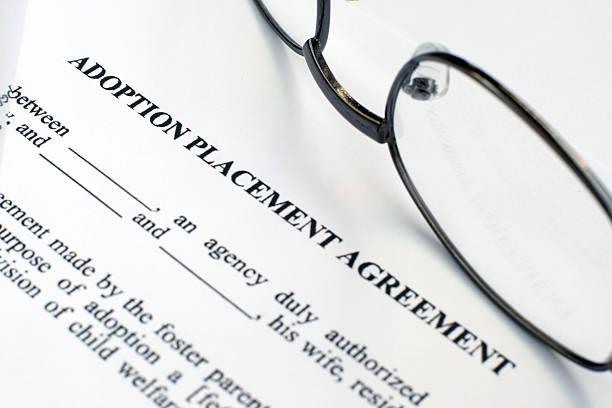Adopting a child is a heartwarming journey, and ensuring all documentation is legally validated is an essential part of the process. Adoption document notarization provides a layer of trust and authenticity to the paperwork involved, ensuring a smooth and lawful adoption process. This guide covers everything you need to know about notarizing adoption documents, including its importance, the steps involved, and answers to frequently asked questions.
What is Adoption Document Notarization?
Adoption document notarization in Birmingham AL is the act of having critical adoption paperwork certified by a licensed notary public. The notary verifies the identity of the parties involved and ensures that the documents are signed willingly and without coercion. This legal acknowledgment guarantees that the adoption process is based on valid agreements and helps avoid disputes later.
Why is Notarization Important for Adoption Documents?
Notarization plays a vital role in:
- Legal Authentication: Ensuring documents meet the legal standards for court acceptance.
- Preventing Fraud: Verifying the identities of involved parties to avoid identity misuse.
- Enhancing Credibility: Adding a seal of authenticity that courts and agencies trust.
Common Documents Requiring Notarization
When completing an adoption, several documents may require notarization:
- Consent forms from biological parents.
- Adoption agreements between adoptive and biological parents.
- Affidavits of disclosure and intent.
- Financial declarations and related affidavits.
How to Prepare for Notarizing Adoption Documents
Preparation is key to a successful notarization process. Follow these steps:
- Gather All Required Documents: Ensure you have every form that needs notarization.
- Verify ID Requirements: Confirm the identification needed for the notary to verify your identity.
- Review Documents for Accuracy: Check for missing details or errors before signing.
- Schedule a Notary Appointment: Choose a qualified notary public in your area.
The Notarization Process Explained
The notarization process involves the following steps:
- Verification of Identity: The notary checks government-issued IDs to confirm your identity.
- Document Review: The notary ensures the document is complete and ready for signing.
- Oath Administration (if applicable): You may need to swear or affirm the truthfulness of the document.
- Witnessing the Signing: The notary observes the signing to confirm it is voluntary.
- Applying the Seal: The notary adds their official seal and signature to validate the document.
Choosing the Right Notary for Adoption Documents
To ensure a seamless notarization process:
- Opt for Experienced Notaries: Choose a notary with expertise in handling sensitive adoption-related documents.
- Check Credentials: Verify the notary’s license and certification.
- Seek Mobile Notary Services: If convenience is a priority, consider notaries who can travel to your location.
Remote Online Notarization for Adoption Documents
With advancements in technology, remote online notarization (RON) has become an option in many states. Benefits include:
- Convenience: Notarize from the comfort of your home.
- Time-Efficiency: Skip travel and complete the process faster.
- Secure Platforms: Use encrypted services to ensure data privacy.
Check your state’s regulations to see if RON is permitted for adoption documents.
Common Challenges in Adoption Document Notarization
While notarization is straightforward, a few challenges may arise:
- Incomplete Documentation: Missing forms or signatures can delay the process.
- Identification Issues: Unavailable or expired IDs can lead to rejection.
- Notary Availability: Finding a specialized notary for adoption documents may take time.
Tips for a Smooth Notarization Process
- Double-Check Requirements: Verify what each document needs before approaching a notary.
- Organize in Advance: Have all paperwork ready and correctly filled out.
- Stay Updated on Laws: Adoption laws vary by state, so ensure compliance with local requirements.
Frequently Asked Questions (FAQs)
Q1: Can a notary public refuse to notarize adoption documents?
Yes, a notary can refuse to notarize if the documents are incomplete, identification is insufficient, or the signer appears coerced.
Q2: How much does it cost to notarize adoption documents?
The cost varies by state and notary service. Standard notarization fees range between $5 and $25 per document, while mobile notaries or RON services may charge additional fees.
Q3: Are notarized documents valid in every state?
Yes, notarized documents are valid across states. However, ensure the notary complies with the laws of the state where the documents are executed.
Q4: Can notarization be done before all parties are present?
No, all parties involved must be present before the notary at the time of signing to ensure authenticity.
Q5: What happens if notarization is not completed?
Failure to notarize required documents can lead to delays or rejection of the adoption application by the court or relevant agencies.
Summary
Professional adoption document notarization is a crucial step in the adoption process, ensuring all parties involved are legally protected and the process is recognized by law. By understanding the procedures and preparing in advance, you can navigate this step confidently and focus on the joyous journey of welcoming a child into your family.









